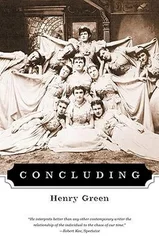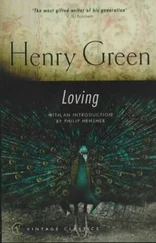He could not explain it to himself, but the fact that old Mr Grant knew Middlewitch made him deeply suspect. He even asked himself what he suspected, only to find that he could not think.
He saw round and round it in his head.
“So I said, ‘it’s the same person,’” Mrs Frazier was bringing the story to an end. “Look out,’ I said, ‘I’m going to faint away,’ I said, and she came forward to take me by the arm. For they were as like as two peas,” she finished, with a glance of triumph at Summers.
“Good lord,” he said, not taking it in.
“But you want to brisk yourself up,” Mrs Frazier went on. “There were plenty like it after the last war. Sat about and moped. Of course it was understandable, but then most things are, and when all’s said and done that’s no credit to anyone, to mope,” she said. “Yes, it draws sympathy, going on like that does, but not for long. There’s the rub. Well I mean no one can be expected to put up with it, not for ever. You want to go out and find yourself a nice young lady. There you are.”
“Talking of resemblances,” Mr Summers suddenly began, and he was still staring at the fire. “Children, and their fathers and mothers. Would you say they looked like?” he enquired.
“Nothing in it,” Mrs Frazier said, favouring him with yet another long glance of interest, “nothing at all.” She went into a detailed account of nephews and nieces, while he thought of Ridley. And then blamed himself that he did not think oftener of Rose.
The telephone rang down in the hall, cut Mrs Frazier short.
“I’ll go,” he offered, for he was willing. Curiously enough, it was for him. Odder still, it was Mr Grant wished to speak.
“And Mrs Grant?” Charley asked.
“Mustn’t complain, mustn’t complain at all,” Mr Grant replied. “When you come to consider, there’s compensations in not remembering, as I dare say you’ve found, eh Charley?” His voice was thin. “No, but what I meant to ring you about was this. Did you ever call round on that little lady I mentioned? I’ll tell you why. You’re one of the diffident sort, unsure of yourself. I’ll be bound you’ve done nothing.”
“It slipped me,” Charley admitted.
“Look,” Mr Grant said, “I’m older than you. I can put forward things that perhaps you would never allow from a man your own age. I didn’t altogether make that suggestion just casually as you might say. There was a reason behind.”
“Well thanks,” Charley answered.
“That’s all right,” Mr Grant ended.
When Charley got back to his room Mrs Frazier spoke of rising prices. “Why,” she said, “they rose, they’ve rose …” and the words, because he had not paid attention, the words pierced right through. He held his breath for the pain to which he had grown accustomed, particularly in Germany, he waited for it to break over him, as he sat isolated by Mrs Frazier’s voice he did not listen to as she rasped on. For he was as sure he would feel the ache as he had, on his one early holiday before the war, been certain that he would hear a cuckoo each walk he took, each occasion he passed an open window. It had been the right time of the year for cuckoos. And now, it seemed, was autumn, for he felt nothing at all at her mention of Rose. Nothing. He was amazed. He blamed himself. But he felt nothing whatever.
“No warning,” he brought out in surprise at this new condition in himself, cutting across the landlady’s tideless flow of talk.
“A warning?” Mrs Frazier echoed, agitated. “I never heard the sound. It can’t be our syrens, then.”
“My mistake,” Charley Summers told her. “Talking to myself again.”
She watched him. He was quite unconscious, with a bewildered look on his face.
“Speaking to yourself?” she asked. “Now Mr Summers, you want to watch out. Not at your age. Why,” she said, “your voice rose,” and again, as this word came through, he not even experienced guilt. “You spoke loud,” she said. “Take care, you can do that when you get to my age, but for a young man like you, well …”
There was a silence while he sat there, avidly listening now.
“Take the price of flowers,” Mrs Frazier continued, back to what she had been discussing, “tulips, daffodils, chrysanths, even violets of the field,” and Charley waited, waited for another sign, “why, they’re out of all reason, they’re black market charges right in the light of day. It’s wrong,” she said.
“There it is,” Charley encouraged her. She thought that, when in the end he did regard you out of those great eyes, they seemed to grow from his head, and float in the air before your own. She was actually breathless with them.
“Yes well …” she tried to go on, then hesitated. But her subject carried her forward. “Yes, you say that, you’re like all the others, you take it for granted,” at which, still thinking of his girl, he smiled, her last remark seemed so absurd. “But you do nothing, the next pay day you’ll go in and buy her a bunch; when you find her, that is, which you won’t by sitting here listening to me. I tell you, when I saw the prices they charge round the corner, my gall rose,” she said, and he heard Mrs Frazier no more. He fastened on this word. Once more he waited. But he felt nothing, nothing at all.
Rose was gone.
So he was in a mood to look about, when S.E.C.O., a government department in charge of the contracts on which he was working, found him Miss Dorothy Pitter as his assistant.
The other girls in the office had had to do his typing as and when they could, on top of their own work. Through the weeks that he was losing Rose they were continually saying to him, “When is this new one expected?” Or, “Don’t S.E.C.O. take a time?” He was popular because of his leg, but the office was critically short of staff, and he could not always find a typist to stay late. As a result he could hardly trust his ears when, a few days after this last talk with Mrs Frazier, a member of the counting house met him one morning to say, “She’s in.”
Then, as he went to his room and saw her, he had once again the experience inseparable from government procedure, he had before his eyes the product of a prolonged correspondence; that is, first the discouraging replies, followed by official consent to there being a vacancy, after which a notification that the vacancy would be filled, then, at last, the name of a person to be directed to fill it, then, finally, that wait, a deadly pause of weeks, before, without warning, these letters, these forms and the reference numbers bloomed into flesh and blood, a young woman, with shorthand, who could type.
She was fair, rather untidy. She seemed absolutely null and void. But he was so pleased to see her, he got almost talkative.
“Well, Miss, it’s been quite a time,” he said.
“I don’t know about that,” she said. “They had me out of where I was working before you could say Jack Robinson. And not a word to warn you.”
“That’s strange,” he said. “They told us they were sending five weeks ago.”
“That’s S.E.V.E. all over.”
“We’re under S.E.C.O. here,” he said.
“S.E.C.O.?” she gave a little scream. “Are you sure there isn’t some mistake?”
“Oh no Miss,” he said, and showed her the papers. He’d kept them, as a sort of talisman, on top of everything else, in the left-hand drawer of a kitchen table they’d given him for a desk.
“That only shows,” she exclaimed. “It’s been going on for weeks, you can see from the dates here, and there’s me been doing everything so I could get forty-eight hours leave, to visit my mum up north.”
“You’ve got your mother away?”
“Yes, she’s evacuated with some relations near Huddersfield. You wouldn’t think they’d miss me for that little time, while I was changing jobs, would you?”
Читать дальше












